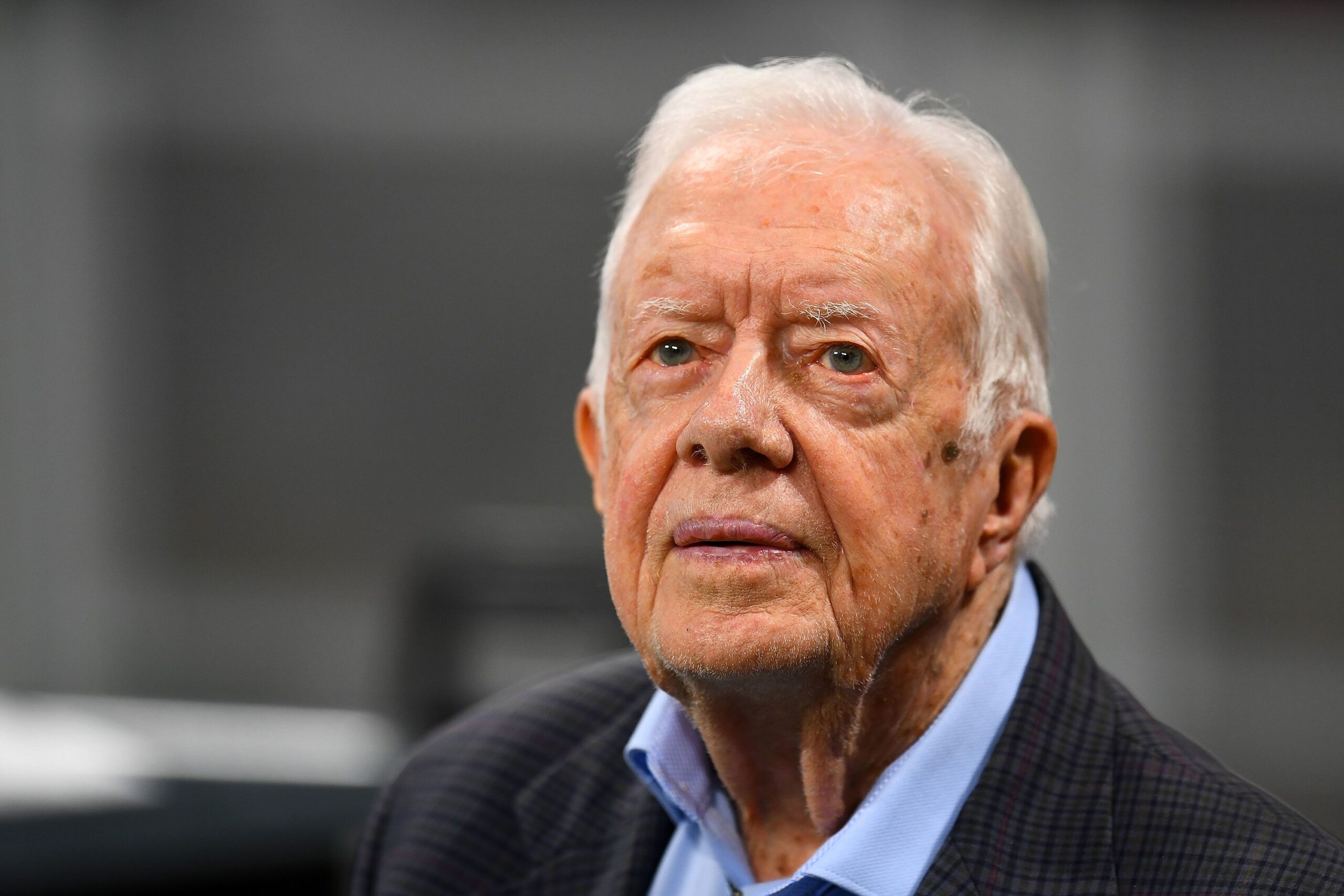PLAINS, Ga. — Jimmy Carter, the 39th President of the United States and a global symbol of integrity and humanitarian service, died peacefully at his home in Plains, Georgia, at the age of 100. His death brings an end to a century-spanning life dedicated to public service, diplomacy, and the betterment of humanity. Carter’s passing follows that of his wife, Rosalynn, who died in November 2023.
From Humble Beginnings to the Presidency
Born James Earl Carter Jr. on October 1, 1924, in the rural town of Plains, Georgia, Carter grew up during the Great Depression. Raised on his family’s farm, he developed a deep connection to the land and a work ethic that shaped his character.
After graduating from the U.S. Naval Academy in 1946, Carter served as a naval officer, working on cutting-edge nuclear submarine programs under Admiral Hyman Rickover. Following the death of his father in 1953, Carter returned to Plains to manage the family’s peanut business, which he modernized and expanded.
Carter’s entry into politics began in 1962 when he was elected to the Georgia State Senate. A decade later, he became governor of Georgia, earning a reputation as a progressive reformer committed to racial equality and government transparency. In 1976, running as a Washington outsider, Carter narrowly defeated Gerald Ford to become the 39th President of the United States.
Presidential Legacy: Triumphs and Trials
Carter’s presidency (1977–1981) was marked by significant achievements in foreign policy and environmental conservation but also beset by economic challenges and geopolitical crises.
Major Achievements
- Camp David Accords: One of Carter’s crowning achievements was brokering the Camp David Accords in 1978, leading to a peace treaty between Egypt and Israel. This groundbreaking agreement ended decades of conflict and earned Carter global acclaim.
- Human Rights Diplomacy: Carter prioritized human rights in U.S. foreign policy, speaking out against authoritarian regimes and promoting democratic values.
- Energy Policy and Conservation: Amid the energy crises of the 1970s, Carter championed renewable energy and conservation, installing solar panels on the White House and creating the Department of Energy.
- Environmental Protections: He expanded national parklands, preserved millions of acres in Alaska, and signed laws safeguarding air and water quality.
Challenges
Despite these accomplishments, Carter faced significant hurdles:
- Economic Struggles: High inflation, stagnant growth, and soaring interest rates plagued his administration, leading to public dissatisfaction.
- Iran Hostage Crisis: The 444-day captivity of 52 American hostages in Tehran overshadowed much of Carter’s presidency, damaging his approval ratings.
- 1979 Oil Crisis: Fuel shortages and long lines at gas stations highlighted America’s dependence on foreign oil, adding to public frustration.
In 1980, Carter lost his re-election bid to Ronald Reagan in a landslide, a defeat that many saw as a rebuke of his leadership during turbulent times.
A Second Act: The Carter Center and Global Humanitarianism
After leaving the White House, Carter embarked on an extraordinary post-presidential career that redefined the role of former U.S. presidents. In 1982, he and Rosalynn founded The Carter Center, a nonpartisan organization dedicated to advancing peace, democracy, and public health.
Global Impact
- Disease Eradication: The Carter Center led efforts to nearly eradicate Guinea worm disease, reducing cases from millions to fewer than a dozen annually.
- Election Monitoring: The Center monitored elections in over 100 countries, ensuring free and fair democratic processes worldwide.
- Conflict Resolution: Carter personally mediated peace talks and addressed humanitarian crises in nations such as North Korea, Haiti, and Sudan.
Nobel Peace Prize
In 2002, Carter received the Nobel Peace Prize for his decades of humanitarian work and commitment to human rights, becoming the only U.S. president to earn the accolade after leaving office.
Personal Life and Community Engagement
Throughout his life, Carter remained deeply connected to Plains, Georgia. He and Rosalynn lived modestly in the same ranch house they built in the 1960s, reflecting their values of humility and service.
The Carters were long-time volunteers with Habitat for Humanity, personally building homes for underserved communities even into their later years. Their partnership, spanning 77 years, was a testament to their shared mission of service and devotion.
Tributes and Legacy
Following news of his death, tributes poured in from around the globe. President Joe Biden hailed Carter as a “beacon of peace and decency,” while international leaders praised his lifelong dedication to justice and equality.
The Carter Center plans to host a public memorial service in Atlanta, with additional tributes scheduled in Washington, D.C. Carter will be buried in Plains, where his legacy began.
Remembering a Life of Service
Jimmy Carter’s life epitomized the ideals of service, humility, and resilience. From the fields of Georgia to the world stage, he demonstrated that leadership is measured not by power but by compassion and the pursuit of justice. His enduring legacy as a peacemaker and humanitarian will continue to inspire generations.
As the nation mourns the loss of its 39th president, his words echo: “We must adjust to changing times and still hold to unchanging principles.” Jimmy Carter held steadfast to those principles, leaving behind a world forever changed by his contributions.
Sources:
- AP News: Jimmy Carter, 39th U.S. President, dies at 100
- The Carter Center: A Legacy of Peace and Health
- Nobel Prize: Carter’s Contributions to Global Peace

